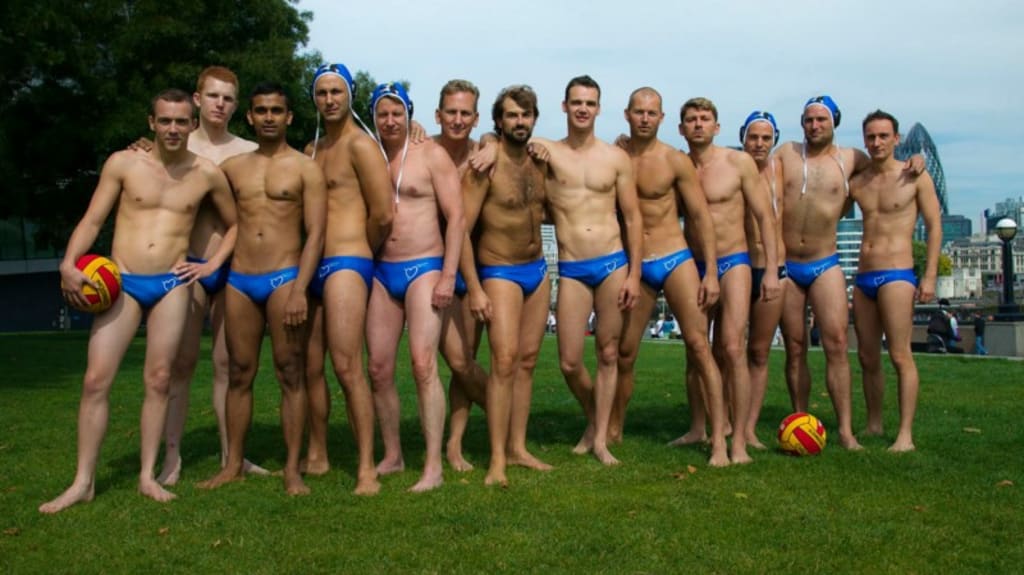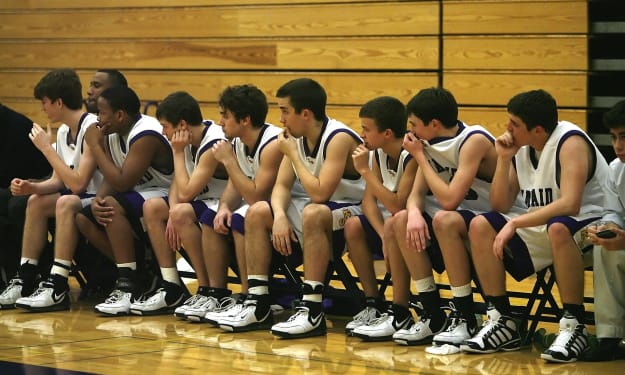Are Gay Sports Clubs Really a Thing?
I was skeptical, but after joining a gay water polo club I quickly realised that my preconceptions were all wrong.

You probably haven’t heard of IGLA – the International Gay and Lesbian Aquatics association. I certainly hadn't until I joined a gay water polo club.
What IGLA does is coordinate an annual championship for the world’s LGBT aquatics clubs. Professional run and highly competitive events in all the aquatic disciplines – swimming, water polo, diving, open water swimming, and synchronised swimming.
Each year, the annual championships are held in a different city – in recent years the host cities have been Cleveland, Stockholm, and Edmonton. The 2017 championships will be held in Miami. Hundreds of people take part and compete.
If you're not part of the gay sports world, you may not realise that there are clubs everywhere where gays and lesbians are training and competing, and the annual IGLA championships is an opportunity for them to all come together and go for gold.
Of course, the annual IGLA championship it’s not the only opportunity for the gay and lesbian members of these clubs to compete — water polo teams will play in local leagues, swimmers and divers will be entering masters events on a regular basis, and most countries welcome men who want to compete in synchro meets.
What makes the annual IGLA championships a bit special is that it’s one of the few occasions where LGBT athletes get to compete and socialise with other LGBT athletes. It's a gay competition. Pretty much everyone there is gay. If you're there, everyone will assume that you're gay. The officials will be gay. Everyone competing will be gay. The people handing out the medals will be gay. It's totally gay.
That may sound a bit separatist or unnecessary — what difference does it make? Why does it have to be gay?
In most respects it doesn’t make any difference whatsoever. The quality of competition and the level of performance is no less than any other competition that these athletes might enter. When you play sport, you want to do your best — sexuality doesn’t come into it. What makes gay sporting events like the IGLA championship important is linked to what scientists describe as Minority Threat Syndrome.
At the mainstream competitions and events that LGBT athletes participate in, they are always and inevitably a minority. Whatever country you go to, or culture you're part of, gay men and lesbians will always only ever be a small minority of the population.
Being part of a minority, in any situation, brings with it a constant subliminal level of stress. Research has shown that this often presents as high blood pressure or anxiety, building up over time and contributing to both mental and physical health issues.
To be at an international-level competition, doing the sport that you love, where pretty much everyone there is somewhere under the broad LGBT umbrella is incredibly liberating. You still swim the same. The rules and regulations are still the same. But what's different is that you don’t have to second guess or edit yourself. It’s hard to explain the sensation, but it makes perfect sense when you hear LGBT athletes talk about how their performances have improved once they feel confident about being open about their sexuality.
If you're at an event where everyone is gay, where you have that in common with everyone that is there, where you are no longer a minority, then you relax, you can just be you. That's an incredibly liberating feeling.
A lot of gay men and lesbians opt out of sport at an early age. Locker rooms and straight sports clubs can be fairly intimidating places when you’re trying to work out who you are.
The health benefits of participation in sport are fairly obvious, but mental health outcomes are particularly important for gay men (who for a range of complex reasons seem to be more prone to mental health issues). We know that participation in sport will mean longer and happier lives for gay men and lesbians.
I used to think that the only reason that people would join a gay sports club would be for a bit of action in the showers after training. However, after joining a gay water polo team I realised I was completely wrong. I was a bit disappointed by the total lack of sexual tension in the showers – we were all to tired to think of anything about washing the chlorine from our bodies and heading to the pub for a beer and some food.
Gay sports clubs matter. They help keep us fit. They help us get back into sport, back into participation in physical activity. Gay sports clubs help us meet other people, they help our social life, they help our self-esteem. Gay sports clubs also give us the opportunity to participate in events such as IGLA's annual championships – one of the few moments in our lives when we no longer feel like a minority.
The history of IGLA: International Gay & Lesbian Aquatics

Melbourne Surge water polo team
Written by Charlie Carson of Team New York Aquatics
The first gay swim team with its own practices and coach began in Los Angeles some months prior to 1982’s Gay Games I. Most of the 125 swimmers at those Games were in fact from teams in the San Francisco and Los Angeles areas. There were enough of us, though, from places like Honolulu, Tucson, Minneapolis, Edmonton, Sydney, and New York to keep it from being an entirely local phenomenon. Before the meet was over, team leaders had exchanged phone numbers and addresses and an informal network of gay swimmers had begun.
By 1986 and Gay Games II, gay and lesbian teams included San Diego, Seattle, and Vancouver. With more than 400 swimmers at those Games, the team leaders decided that we were both enjoying the exercise and having too much fun to wait four years to get together again. San Diego’s team volunteered to host a meet in early 1987.
About 120 showed up in March, 1987 at the Allied Gardens Pool for what was called the West Coast Gay Swim League Championships. The fact that it was as large as Gay Games I was an encouraging sign. Rafael led the team leaders’ meeting of about 15 people, and he and his West Hollywood team volunteered to collect information to publish a directory of gay and lesbian swimming contacts.
Just as Gay Games II was held in San Francisco to smooth out the kinks from the first one, San Diego volunteered to host a second gay championships in 1988 with plans to include water polo. Vancouver agreed to host a meet in 1989 so that everyone could get used to the pool and as a practice for themselves prior to Gay Games III in 1990.
Meanwhile, Team Seattle’s first Northwest Gay & Lesbian Sports Festival — which included swimming — began in July 1987. It was at that meet that the name IGLA was adopted. There was much hopeful talk that the word “international” would soon encompass more than the U.S. and Canada. Also, a retroactive decision was made to call San Diego’s 1987 meet the first official IGLA Championships, beginning the now annual tradition.
About the Creator
Gareth Johnson
A non-smoker who loves to laugh... (and binge on travel, food, movies, fashion, and theatre...). Find me on Twitter @gtvlondon






Comments
There are no comments for this story
Be the first to respond and start the conversation.